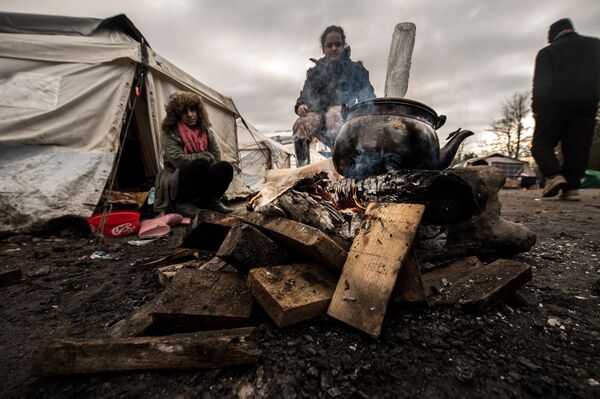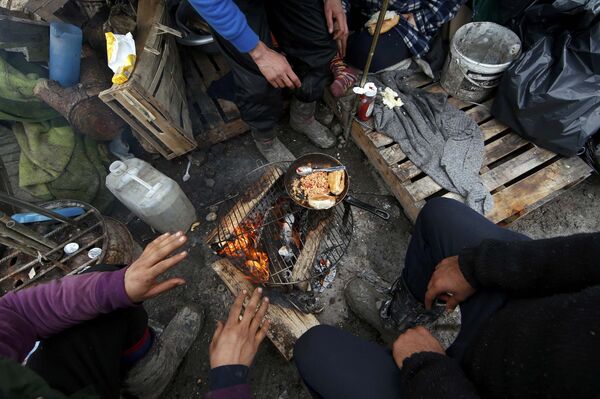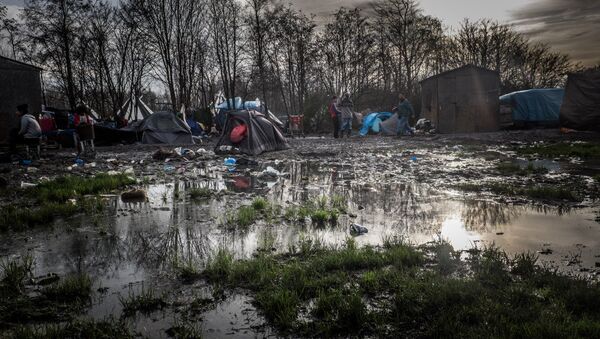Germany's Deutsche Welle (DW) reported about the horrible living conditions at the Dunkirk refugee camp, home to predominantly Kurdish refugees from Syria.
The refugee camp has quickly grown from 700 inhabitants in October of 2015, to more than 3,000 now.
"This place is for animals, not for humans. France is not good for us," one of the refugees, Omed Mohamed, told DW, while standing ankle-deep in the mixture of mud and human waste.

Dunkirk is arguably Europe's worst refugee camp and has conditions "unseen anywhere else along the migration trail," said Angel Muller, a project coordinator for Doctors Without Borders (MSF) in Grande-Synthe, according to DW.
The camp has only two water faucets and one toilet per 115 people. Rats are said to be crawling around the tents in search of scraps of food. Needless to say, the smell around the camp can be intolerable to many, but refugees in Dunkirk have no choice.

Muller said that refugee camps in South Sudan with 80,000 people are better coordinated than the Dunkirk camp, which has 3,000 people in a rich country like France.
"It's really a shame for me [as a French citizen]," Muller told DW.
Since a local municipality clearly isn't doing much to alleviate the dire situation in the camp, refugees are able to survive only thanks to MSF and volunteers willing to help out of the goodness of their hearts, according to DW.

Volunteer Mecha den Houdyker, for example, visits the camp every weekend to clean up drainage ditches, submerged waist-deep in them, hoping to decrease the spread of disease. The drainage ditches are often used as bathrooms.
Just last week, the head of the MSF mission in France told Sputnik that the French government was not willing to spend a single cent on the construction of a new refugee camp. So MSF alone would have to construct a new camp.
Europe is struggling to cope with a massive influx of refugees from conflict-torn countries in the Middle East and North Africa. According to the United Nations, over a million migrants crossed into Europe via the Mediterranean and the Aegean seas in 2015.


